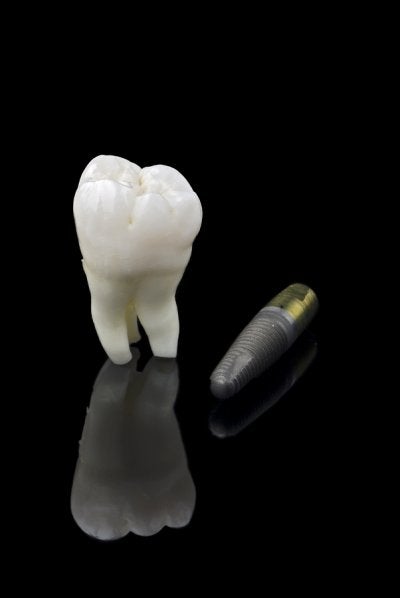-
The Many Benefits of Straight Teeth
You might not realize how much crooked teeth can affect your life and overall health. Whether you choose braces or Invisalign as your ideal teeth-straightening method, fixing spacing and alignment issues with your teeth can bring many benefits. Keep reading to find out why now is the time to talk to an orthodontist about straightening your teeth:
More Confidence
If you feel self-conscious about the condition of your teeth, you might not smile as much as you want. Straightening your teeth helps you instantly feel better about your smile, which makes you want to show it off. When you smile more, you feel and look more confident. Feeling good about yourself and your smile can help you in your social and professional interactions, which can improve every facet of your life.
Better Oral Health
It is much easier to clean straight teeth than it is to clean crooked ones. If you want to improve your oral health and get cleaner teeth and gums, it is time to talk to the orthodontist about straightening methods like braces or Invisalign. When you can easily clean between all of your teeth and gums, you can significantly lower your risk for tooth decay, cavities, and periodontal disease. If you can maintain healthy gums, you can also lower your risk for other health issues like heart disease or diabetes.Less of a Chance for TMJ Disorders
When your bite is even, you are not as likely to have issues with the temporomandibular joint (TMJ). TMJ disorders can cause pain, headaches, and stiffness or clicking in the jaw. When you straighten your teeth, though, you take stress off of the TMJ and reduce your risk for these uncomfortable disorders.With so many new advancements in dental technology, it is easier than ever to get straight, beautiful teeth. Schedule an appointment with a Glenview orthodontist to start talking about the different straightening options and to find the right treatment plan for your needs.
-
Why DentiStar Is Your Best Choice
At DentiStar, there is nothing more important than or patients. Check out our latest reviews on Yelp to read about why people love Dr. Shin. Have a great experience of your own? We would love to hear about it. Leave a review on our Google+ page.
“I’m glad me and my family decided to come in because we definitely left with a happy mindset and possibly a new family dentist.” – Maximiliano A.

-
Meet Dr. Sam Shin, DDS
It is extremely important that a patient feels comfortable with an oral health professional so they regularly attend their checkups. The right dentist can help a patient work toward a healthier, more beautiful smile.
Dentists like Dr. Sam Shin, DDS help their patients get the oral care they need to maintain healthy teeth and gums. After graduating from New York University’s College of Dentistry in 2004, Dr. Shin started to work toward becoming the best dentist he could be. He holds contributing memberships to the American Dental Implants Association, the American Academy of Implant Dentistry, the American Academy of Pediatric Dentistry, the American Dental Association, and the Illinois State Dental Society.
Dr. Shin works closely with his patients to ensure that they get the care that they need for their specific oral issues. If you are looking for a dentist in Glenview who is looking out for you, Dr. Shin is it. Schedule an appointment for a checkup and see how Dr. Shin can help you improve your smile.

-
A Look at the Dental Implant Procedure
Dental implants have already helped people all over the world find a permanent solution for their problems with missing teeth. If you and your dentist in Glenview have decided that dental implants can help you, use this guide to learn more about the procedure and what to expect from it:
Taking a Visit to the Dentist
Once you officially decide to get dental implants, your dentist will most likely perform the procedure in his or her office. Most patients only need local anesthesia, but there are other available sedation options like nitrous oxide or intravenous sedation. The dental implant procedure requires a few different visits so you can give the gums enough time to heal in between getting the implant and the replacement tooth.
Placing the Implant
The first step to the procedure is to place the implant beneath the gum. The implant will serve as a new tooth root. Once it is placed, the area around the implant needs some time to heal before the dentist can move onto the next step of the procedure.Attaching the Abutment
Once the dentist is sure that the implant has officially healed, he or she can attach a post, known as an abutment, which extends into the mouth. The gum needs time to heal around the abutment before the dentist can finish the procedure with the replacement tooth.Completing the Process with the Replacement Tooth
While the gum heals around the abutment, your dentist will probably advise you to stay away from chewing on hard food. As soon as the area is healed, the dentist will attach custom replacement teeth on to the implants to restore the aesthetic appeal and the function of your smile.As long as you are in good overall health, have enough jawbone, and do not have any major oral issues like periodontal disease, you could be a good candidate for dental implants. Talk to your dentist about the implant procedure to find out if it might be the right solution for you.
-
The Importance of Brushing and Flossing
Ask your dentist what the most important things you can do for you oral health are, and you’ll learn that the solution to a healthy smile is actually fairly simple: brush and floss. Brushing and flossing are at the foundation of a good oral healthcare regimen, and along with regular visits to your Glenview dentist , can help prevent a wide range of dental health issues.
Watch this video to learn more about the importance of brushing and flossing. You should brush at least twice a day and floss at least once daily to reduce your risk of tooth decay and gum disease. If you need help perfecting your brushing and flossing methods, ask your dentist for advice. Teaching patients good oral health habits is an important part of family dental care, and your dentist will be happy to help.